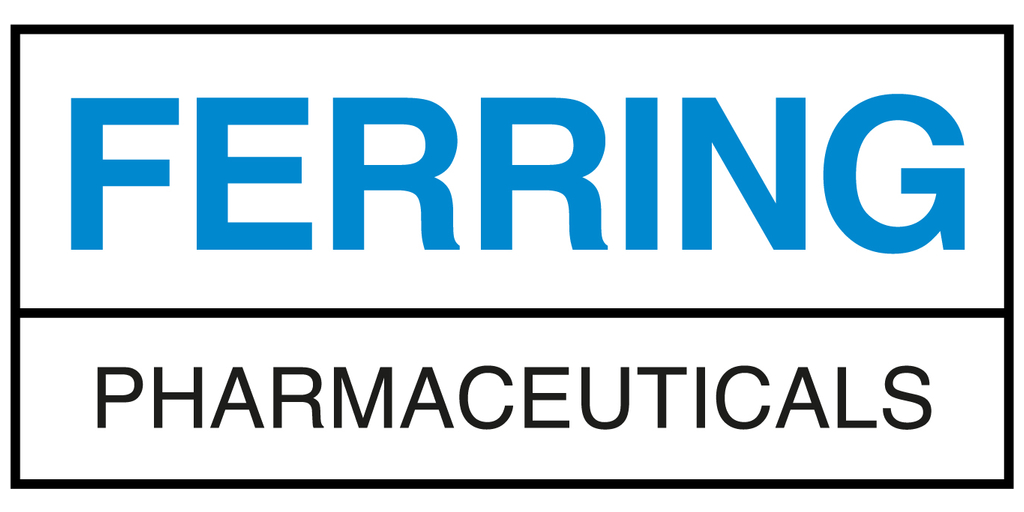- Real-world analyses evaluated the effectiveness of REBYOTA in patients with GI conditions or comorbidities as well as those who received therapy at home or in a clinic
- Interim data from a third analysis reported on changes in health-related quality of life among REBYOTA patients
- Analyses add to growing body of real-world data for REBYOTA
PARSIPPANY, N.J.--(BUSINESS WIRE)--Ferring Pharmaceuticals today announced three poster presentations at the American College of Gastroenterology’s annual meeting (ACG 2024), including two analyses evaluating the efficacy and safety of REBYOTA® (fecal microbiota, live – jslm) administered in a real-world setting and an interim analysis looking at health-related quality of life among REBYOTA patients. REBYOTA is the first and only single-dose microbiome-based therapy approved by the U.S. Food and Drug Administration (FDA) for the prevention of recurrent C. difficile (C. diff) infection in individuals 18 years of age and older, following antibiotic treatment for C. diff infection.
The first real-world retrospective analysis (poster number P2570) looked at outcomes for 67 adults 18 years of age or older with recurrent C. diff infection (CDI) who received REBYOTA in physician offices between February 2023 and May 2024. Recurrence, assessed at Week 8 and six months after REBYOTA administration, was defined as any occurrence of diarrhea with three liquid bowel movements or more within 24 hours. Treatment success was defined as absence of recurrence. At Week 8, 77.6% of patients were recurrence free. Of 30 patients with six-month follow-up, 86.7% (n=26) maintained a sustained response. Patients with inflammatory bowel disease (IBD) – either Crohn’s disease (n=2) or ulcerative colitis (n=3) – had no CDI recurrences at 8 weeks and at 6 months. There were no adverse events reported aside from minor leakage during administration in five patients (7.5%).
“Recurrence remains a common threat for people who have C. diff infection, with the risk increasing in older adults and those who have had multiple recurrences. This analysis adds to our growing body of real-world data on the efficacy and safety of REBYOTA observed in a patient population seen in clinical practice every day,” said Timothy Ritter, M.D., GI Alliance, Southland, Tex.
Based on a review of patient electronic health records, the population in this analysis was highly comorbid, with a Charlson comorbidity score of 4 (interquartile range (IQR) 3.0-6.5). More than half of the patients had three or more CDI recurrences (50.7%), were age 65 or older (71.6%), had gastrointestinal diseases other than ulcerative colitis or Crohn’s disease (65.7%), and were treated with gastric acid suppressants (55.2%). Among patients with GI conditions, 7.5% (n=5) had IBD. Age (≥65 years) was associated with the highest incidence of recurrence. All patients received standard of care antibiotics prior to REBYOTA administration, with fidaxomicin being the most predominant (58.2%).
The second real-world abstract (poster number P2588) was a retrospective analysis of 108 adult patients with recurrent CDI who received REBYOTA either at home or in a clinic and who had at least eight weeks of follow-up after REBYOTA administration and reported CDI recurrence status at Week 8. The primary outcome was treatment success, defined as the absence of CDI recurrence within eight weeks of REBYOTA administration. Nearly all patients (94.4%) received REBYOTA within 24 to 72 hours following antibiotic treatment and three-quarters (75.0%) received REBYOTA at home. After eight weeks, 83.3% of participants had no CDI recurrence, including 82.4% (85/102) who had not previously received REBYOTA and 100% of patients who were previously treated with REBYOTA (2/2) or whose treatment history was not known (4/4).
The median age was 64.5 and most participants were female (72.2%). Most patients (79.6%) had three or more CDI recurrences, and 21.3% had received gastric acid suppressants. In addition, 5.6% had fecal microbiota transplantation previously and 10.2% had been treated with a monoclonal antibody. One-third of patients were previously hospitalized (32.4%) and 36.1% had prior emergency room visits due to CDI. Most patients previously received antibiotics for recurrent CDI, including vancomycin (36.1%), fidaxomicin (8.3%), or a combination of vancomycin and fidaxomicin (49.1%) or vancomycin, fidaxomicin, and metronidazole (0.9%).
In the third analysis (poster number P0200), patients participating in CDI-SCOPE – a multi-center, single-arm Phase 3b clinical trial – were invited to take part in a one-hour interview exploring the burden of recurrent CDI on health-related quality-of life (HRQoL) and any improvements in HRQoL following REBYOTA administration. Participants were interviewed eight weeks after receiving REBYOTA or within 14 days of recurrence, whichever occurred first. This analysis looks at interim data from 15 patient interviews. Prior to treatment, 66.7% of patients reported diarrhea as the most bothersome symptom and 70.0% said it was the most important symptom to resolve. Following REBYOTA administration, diarrhea had either resolved completely (53.3%) or was less severe (46.7%), with patients reporting the average severity rating [0-10, no symptoms to worst possible symptoms] dropping from 8.4 to 0.3.
Participants reported that CDI impacted their day-to-day life. Most said CDI required them to stay close to a bathroom (80.0%), impacted their leisure time (80.0%), disrupted sleep (73.3%), and affected their ability to eat nutritious meals (73.3%). In addition, most participants feared their recurrent CDI would not resolve (60.0%) and reported debilitating fatigue (60.0%). Following REBYOTA administration, participants reported improved physical function (73.3%), ability to spend time with family again (93.3%), able to return to leisure activities (73.3%), and feeling better mentally (86.7%).
About C. diff infection
C. diff infection is a serious and potentially deadly infection that impacts people across the globe. The C. diff bacterium causes debilitating symptoms, such as severe diarrhea, fever, stomach tenderness or pain, loss of appetite, nausea and colitis (an inflammation of the colon).1 C. diff infection can be the start of a vicious cycle of recurrence, causing a significant burden for patients and the healthcare system.2,3 It has been estimated that up to 35% of C. diff infection cases recur after initial diagnosis and people who have had a recurrence are at significantly higher risk of further infections.4,5,6,7 After the first recurrence, it has been estimated that up to 65% of patients may develop a subsequent recurrence.6,7 Antibiotics – the current standard of care for treatment of C. diff infection – treat the disease but can also be a contributing factor to the cycle of recurrence.1
About REBYOTA
REBYOTA is a pre-packaged, single-dose 150 mL microbiota suspension for rectal administration consisting of a liquid mix of up to trillions of live microbes – including Bacteroides. REBYOTA is delivered directly to the gut microbiome and is administered by a healthcare professional in one visit.
INDICATION
REBYOTA (fecal microbiota, live – jslm) is indicated for the prevention of recurrence of Clostridioides difficile (C. diff) infection in individuals 18 years of age and older, following antibiotic treatment for recurrent C. diff infection.
Limitation of Use
REBYOTA is not indicated for the treatment of C. diff infection.
IMPORTANT SAFETY INFORMATION
- You should not receive REBYOTA if you have a history of a severe allergic reaction (e.g., anaphylaxis) to REBYOTA or any of its components.
- You should report to your doctor any infection you think you may have acquired after administration.
- REBYOTA may contain food allergens.
- Most common side effects may include stomach pain (8.9%), diarrhea (7.2%), bloating (3.9%), gas (3.3%), and nausea (3.3%).
- REBYOTA has not been studied in patients below 18 years of age.
- Clinical studies did not determine if adults 65 years of age and older responded differently than younger adults.
You are encouraged to report negative side effects of prescription drugs to FDA. Visit www.FDA.gov/medwatch or call 1-800-332-1088.
Please click to see the full Prescribing Information.
About Ferring Pharmaceuticals
Ferring Pharmaceuticals is a privately-owned, research-driven, specialty biopharmaceutical group committed to building families and helping people live better lives. In the United States, Ferring is a leader in reproductive medicine and maternal health, and in areas of gastroenterology and orthopaedics. We are at the forefront of innovation in microbiome-based therapeutics and uro-oncology intravesical gene therapy. Our company was founded in 1950 and is headquartered in Saint-Prex, Switzerland. Ferring employs more than 7,000 people worldwide and markets its medicines in over 100 countries. Ferring USA is based in Parsippany, New Jersey, and employs more than 900 employees.
For more information, please visit www.ferringusa.com, call 1-888-FERRING (1-888-337-7464), or connect with us on LinkedIn, and X (Twitter).
About ACG 2024
Founded in 1932, the American College of Gastroenterology (ACG) is an organization with an international membership of over 18,000 individuals from 86 countries. The College’s vision is to be the preeminent professional organization that champions the prevention, diagnosis, and treatment of digestive disorders, serving as a beacon to guide the delivery of the highest quality, compassionate, and evidence-based patient care. The mission of the College is to enhance the ability of our members to provide world class care to patients with digestive disorders and advance the profession through excellence and innovation based upon the pillars of Patient Care, Education, Scientific Investigation, Advocacy and Practice Management. www.gi.org
References:
- Centers for Disease Control and Prevention. What is C. diff? 7 Sep. 2022. Available at: https://www.cdc.gov/cdiff/what-is.html.
- Centers for Disease Control and Prevention. 2019 Antibiotic Resistance Threats Report: Clostridioides difficile. 23 Nov. 2021. Available at: https://www.cdc.gov/drugresistance/pdf/threats-report/clostridioides-difficile-508.pdf.
- Feuerstadt P, et al. Healthcare resource utilization and direct medical costs associated with index and recurrent Clostridioides difficile infection: a real-world data analysis. J Med Econ. 2020;23(6):603-609.
- Riddle DJ, Dubberke ER. Clostridium difficile infection in the intensive care unit. Infect Dis Clin North Am. 2009;23(3):727-743.
- Nelson WW, et al. Health care resource utilization and costs of recurrent Clostridioides difficile infection in the elderly: a real-world claims analysis. J Manag Care Spec Pharm. 2021 Jul;27(7):828-838. doi: 10.18553/jmcp.2021.20395. Epub 2021 Mar 11.
- Kelly, CP. Can we identify patients at high risk of recurrent Clostridium difficile infection? Clin Microbiol Infect. 2012; 18 (Suppl. 6): 21–27.
- Smits WK, et al. Clostridium difficile infection. Nat Rev Dis Primers. 2016;2:16020. doi: 10.1038/nrdp.2016.20.
Contacts
For more information, please contact:
Lisa Ellen
Director, Brand Communications
+1-862-286-5696
lisa.ellen@ferring.com






